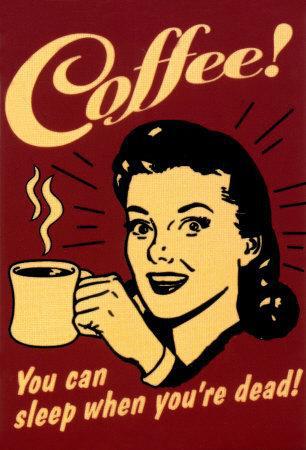
Because so many people have asked me over the past couple of weeks about where I stand on the caffeine issue, I decided to write a blog post about it to clear up any confusion among anyone wondering whether they should finally kick the caffeine habit.
Why Caffeine Is Bad
If you use caffeine as a substitute for an adequate amount of sleep (between 7 – 9 hours per night for most people), then the definitive answer for you is yes, you do need to stop consuming caffeine until you get your sleep schedule under control. Not getting enough sleep sets you up for developing metabolic syndrome, obesity, car accidents, lack of productivity, and cognitive decline. Caffeine will not save you from any of this, and it just might hasten your demise by putting excessive stress on your adrenal glands.
You should also stop consuming caffeine if you have become dependent on it to feel alert in the mornings, to have regular bowel movements, or as a “fix” for an afternoon wane in energy. These are tell-tale signs that you are addicted to caffeine, and are possibly requiring increasingly larger amounts of caffeine in order to get the same effects. Eventually this, too, will lead to more serious health problems.
Why Caffeine Is Good
If you can do without caffeine and still make it through your day without feeling sleepy, grouchy, constipated, or headachey, the occasional cup of coffee or green tea can provide you many benefits without doing harm. Aside from the antioxidants in coffee and tea, the caffeine itself can increase both cognitive and physical performance. If you’re going to be taking an exam, going to a job interview, working out, competing in an athletic event, or anything else requiring you to be “on,” a moderate amount of caffeine can enhance your mental focus and physical abilities. Just don’t overdo it! There’s no need for the excessive amount of caffeine in Monster energy drinks! A cup of coffee, yerba mate, or green tea should be enough, taken 30 – 60 minutes before you need it most. You might want to take one day a week or one week per month off of caffeine to make sure you don’t become dependent on it.

